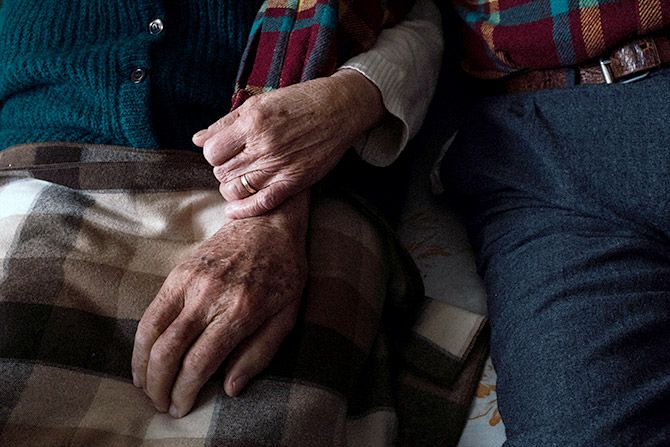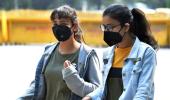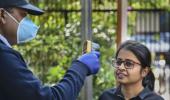Elders must think twice about having friends and family members visit them, especially if anyone in the family might be sick, says Prashanth Reddy.

Coronaviruses (CoV) or COVID-19 is a large family of viruses that cause illness ranging from the common cold to more severe diseases such as Middle East Respiratory Syndrome (MERS-CoV) and Severe Acute Respiratory Syndrome (SARS-CoV).
The novel coronavirus (nCoV) is a new strain that has not been previously identified in humans. COVID-19, according to recent studies, can infect anyone. However, senior citizens who are on medication and have poor immunity are more prone to suffer from this ailment.
Government medical authorities from all over the world, based on initial data of the infection, have identified older adults and people who have severe chronic or pre-existing medical conditions like weakened immune systems, asthma, diabetes, heart issues, lung infections or diseases, or kidney diseases at significantly higher risk of contracting the infection with increased difficulty in recovery.
The World Health Organization (WHO) has identified that the mortality rate is higher among people over 80 years of age as well as in those with underlying health conditions. Moreover, older adults are also more likely to have underlying health conditions that make it harder for their bodies to cope up with and recover from illness.
The symptoms
An individual affected by the virus may start showing the symptoms within 2 to 14 days post their exposure to the CoV.
Distinctive symptoms include fever, cough, shortness of breath, runny nose, sore throat, etc. However, an individual exhibiting these conditions doesn't need to have been affected by the virus.
Since it is easy to get confused between the symptoms of the COVID -19 and its lesser lethal cousins of the Coronavirus family like the flu or common cold, it is highly imperative to examine the mentioned symptoms in conjunction with other factors such as any recent contact with COVID-19 positive person, shared spaces with the affected or recent travel history to an area or country that has a widespread infection of COVID-19 and so on.
Affected individuals as of now can only take self-preventive measures such as self-quarantine and ensuring that no droplets are released into the open air by covering their mouth and nose while sneezing and coughing.
Although it is imperative to take care of oneself during such difficult times, it is also mandatory not just for the elderly but also for everyone to take basic preventive measures to deal with the situation.
The basic code of conduct includes washing hands as frequently as possible, using tissues/ handkerchiefs while sneezing and coughing and also avoiding touching one’s face.
While taking care of the elderly, who are at a significantly higher risk of infection and slower recovery, certain measures have to be adopted. These measures can be broadly classified as mentioned below:
1. Pre-emptive isolation is not necessary yet but social distancing and frequent hand-washing are vital.
2. People with chronic health conditions -- heart disease, kidney disease, liver disease, chronic respiratory disease, diabetes, and hypertension are also at higher risk, as are people with suppressed immunity, hence seeking medical attention at early stages is highly recommended
3. Keep surfaces that might be touched as clean as possible.
4. It is extremely essential to listen to the doctor's advice on these issues. There have been cases of family members disregarding the doctor’s advice of isolation, not waiting for test results to emerge and getting the patient discharged. Only to lead to the patient’s death. Remember, ignoring a doctor’s advice can be fatal, not only for the patient but also for the caregivers and their loved ones. Caregivers should practice extra precautions themselves and the family should have a backup plan to care for their loved one in case the caregiver gets sick.
5. With the elderly, their fears and anxieties need to be allayed. This makes it more important to speak and communicate with them regularly and alleviate their fears and doubts. This will help put to rest their nervousness and promote a calm, confident action plan to combat this virus and its spread.
6. Elders must think twice about having friends and family members visit them, especially if anyone in the family might be sick.
7. Ensure there are enough supplies like food and medication in the house that can last for at least two weeks, or maybe more. In many cases, you can mail order the medication and use grocery delivery services, as ways to further protect the older adults in the family.
Prashanth Reddy is founder and director, Anvayaa Kin Care. He can be contacted on ga@rediff-inc.com











 © 2025
© 2025